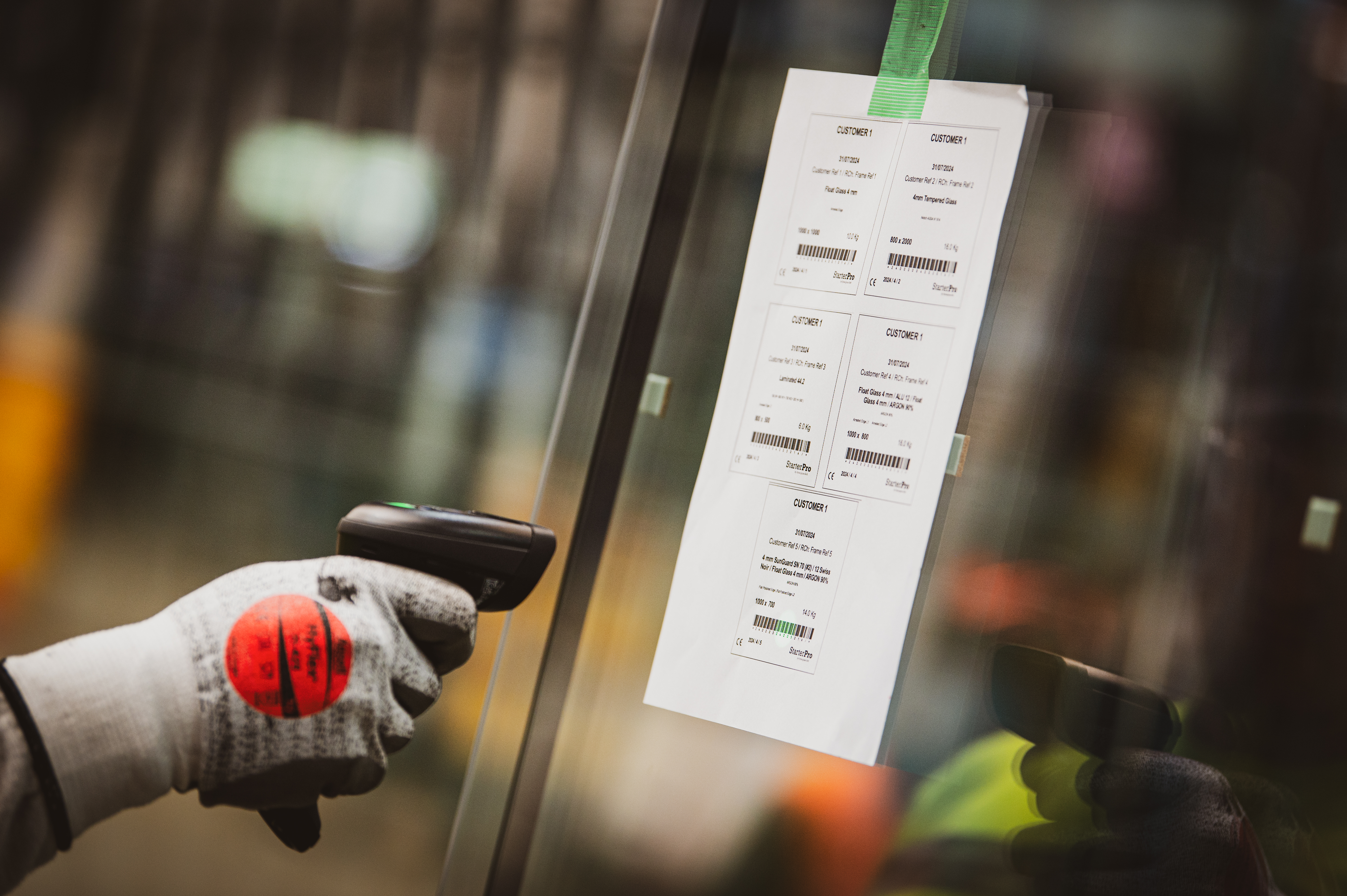One morning, we walked into our office only to discover that our network had been frozen by a cyberattack. Our client orders, sensitive financial data, and operations were all inaccessible. It is the last thing you want to think about. Still, this scenario is becoming more common, especially in industries like glass processing, where cybersecurity may not always be at the top of their minds.
At Synerglass-Soft, we know this feeling all too well. Having experienced a cyberattack ourselves, we quickly learned what it is like to have your data and your operations under threat and what you need to do to secure your system.
In this article, we will walk you through the cybersecurity best practices that we, along with many businesses, have adopted to protect ourselves. And now, we are here to help you protect your business too. By the end, you will learn practical, easy-to-implement cybersecurity strategies to protect your glass processing business from potential cyberattacks.
Why Cybersecurity Matters to Glass Processors
If you are a glass processing business owner, IT manager, or someone who oversees operations, you are probably focused on making your production more efficient, delivering quality products, and meeting customer demands. As your business becomes more digital, whether through enterprise resource planning (ERP) systems or other software, cybersecurity is something that must be addressed and fixed. In 2024, it is no longer acceptable to run a business without taking proper steps to secure your digital operations.
You might be thinking, “But we are a glass company. Why would anyone want to target us?” The reality is that cybercriminals do not discriminate. Every business, regardless of size or industry, holds valuable data – client information, financial details, or production schedules – that can be exploited. The threat is not just to large corporations; small to medium-sized businesses are increasingly becoming targets because they often have fewer resources to dedicate to cybersecurity.
Key Cybersecurity Threats Facing Companies
It is important to recognize that a cyberattack can not only cost you not just money, but also your reputation. For a glass processing business, this could mean lost revenue, damaged customer relationships, and even bad publicity that spreads through word of mouth. If customer data is breached, you could face lawsuits and regulatory penalties. Let’s take a closer look at how these cyber threats can impact your business:
Production Delays
Your glass processing business needs to be efficient and deliver on time. Now, imagine your whole system crashes because of a cyberattack. It could be ransomware, a data breach, or even a malicious virus. Your scheduling software, inventory tracking, and production machines could all be down for a day, a week, or even longer. During this downtime, your production comes to a standstill, creating massive delays. This not only puts you behind schedule but could also mean missing key deadlines, losing important contracts, and, ultimately, damaging your reputation.
For example, if you are processing an urgent order for a major construction project and your ERP system is down for a week, your client might choose another supplier who can deliver on time. Even after restoring your systems, it may be challenging to regain that client’s trust.
Having reliable data backups and regularly updated software can reduce downtime, but the consequences can still disrupt your operations.
Data Breaches
In today’s business world, data is one of your most valuable assets. It includes customer information, employee records, financial details, and the company’s production methods. When a cybercriminal breaches your data, the fallout can be severe. Not only could you lose this sensitive information, but it could also be exposed to the public, or sold on the dark web.
Beyond the immediate financial loss, a breach can significantly damage customer trust. It takes time and effort to rebuild that trust. Imagine if one of your most loyal customers finds out that their personal or financial data has been stolen. It could lead to legal action, lost business, and a blow to your reputation. Depending on what data was exposed, you might also face penalties from regulators.
To keep your data safe, use encrypted cloud storage solutions – like a digital lockbox for your important files, where only the right people can access them. Also, make sure all your remote connections go through a secure VPN (Virtual Private Network), which acts like a private tunnel to keep your internet activity safe from anyone who should not see it.
Ransom Payments
It is becoming common for businesses to be targeted by ransomware attacks and glass processing companies are no exception. In these attacks, hackers encrypt your data, or lock you out of your own systems, then ask for payment – often in the form of cryptocurrency – to get back in. It might seem like the easiest thing to do to pay the ransom and hope for the best, but this is a risky move.
Many businesses pay tens of thousands, or even millions of dollars to hackers, only to find that their data is still locked or, worse, deleted entirely. On top of that, paying a ransom makes your business look like an easy target for future attacks. Once cybercriminals know you are willing to pay, they may come back with larger demands, or encourage other hackers to try their luck. Also, paying a ransom does not fix the underlying vulnerabilities in your system, leaving you susceptible to future breaches.
To avoid this happening, make sure you have regular backups in place so you can restore your data without paying a ransom. Add to this strong encryption and firewall protection and you will be much less likely to have your operations taken over by ransomware.
5 Best Practices to Secure Your Glass Processing Business
Train Your Employees
Your employees are your first line of defense. One of the most common ways businesses get hacked is through so-called ‘phishing attacks’. These are where hackers trick employees into revealing sensitive information, or downloading malicious files. Training your team on spotting suspicious emails or links can help them avoid costly mistakes. A simple exercise? Teach them to always double-check the sender’s email address before clicking any links.
Many companies have found success by conducting regular cybersecurity workshops for their teams, significantly reducing the number of phishing attempts that result in breaches. It is one of the easiest yet most effective measures any business can take.
Update and Patch Your Software
Outdated software is one of the biggest weaknesses hackers exploit. It does not matter if it is your ERP system or your antivirus software, keeping everything up to date with the latest security patches can close gaps hackers might use to get in. Set up a regular schedule to check for updates and automate this process whenever possible.
Businesses that make software updates part of their regular maintenance schedule experience fewer security breaches. Setting up automatic patch updates means you can address and fix any vulnerabilities quickly.
Implement Strong Passwords and Multi-Factor Authentication (MFA)
Weak passwords are an open door for hackers. Encourage your employees to use strong, unique passwords for each system. Even better, get multi-factor authentication (MFA), which requires a second form of verification (like a code sent to their phone) before accessing sensitive data.
Adding MFA to a company’s system gives you another layer of security. It makes it a lot harder for someone to access your account even if they get hold of your password.
Backup Your Data Regularly
Imagine you are hit by a ransomware attack and lose access to your files. If you have a recent data backup, you can restore your systems without paying a ransom. Make sure your backups are stored off-site or in the cloud, and test them regularly to ensure they are working properly. Use both automated backups and manual checks to ensure nothing is missed.
Companies that maintain regular, secure backups, whether that is in the cloud or off-site, can get their business back up and running quickly after a cyberattack. That way, you do not have to pay the hackers a ransom.
Secure Your Network
Ensure that your company’s network is protected by firewalls and encryption. A firewall will help block unauthorized access, while encryption makes sure that any sensitive data you are sending across your network is safe. Encryption means “scrambling your data so that only authorized people can read it. It is like locking up your most valuable information in a safe”. Check your network security protocols regularly and change them when needed, to keep up with new threats.
If you ensure you have a solid firewall set-up and encrypted data transfers, you can create a kind of invisible but powerful barrier against potential cyber threats.
Building a Cybersecurity Culture in Your Company
It is important to implement these best practices, but it is just as important to create a culture of cybersecurity within your organization. Encourage open discussions about cybersecurity and make it a part of your daily operations. Make sure you teach employees how to identify potential threats and contribute to a safer work environment. This not only reinforces the importance of cybersecurity, but also empowers your team to take an active role in safeguarding the business.
You Do not Have to Be an Expert, But You Do Need to Act
The key takeaway here? Cybersecurity does not have to be overwhelming. Yes, there are a lot of potential threats out there, but by taking a few steps, you can protect your business. The best practices outlined above will help you reduce the risk of attacks, but knowing where you stand is crucial.
Not sure where to start with securing your glass processing business? Schedule a free consultation with us today. We will help you identify vulnerabilities and get clear, actionable steps to protect your business.
Click here to book your consultation or contact us at sales@synerglass-soft.com, and we will help you get started on building stronger cybersecurity defenses. We have experienced these threats firsthand and know what it takes to stay secure.




